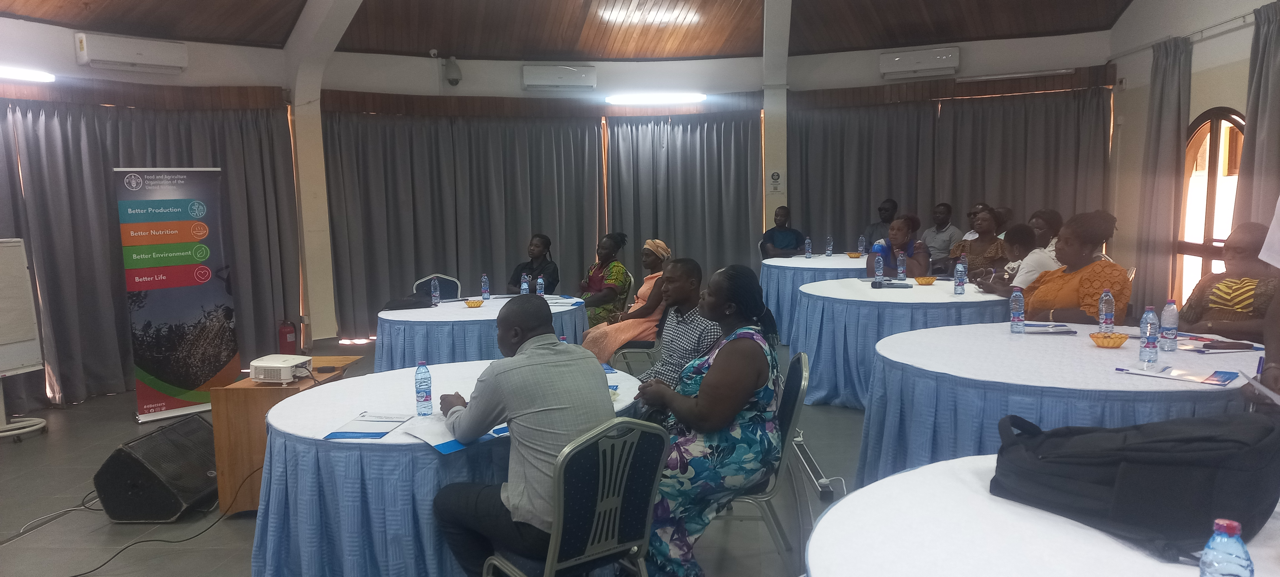FAO and Fisheries Commission train stakeholders on participatory management of small-scale fisheries infrastructures

©FAO/Abigail Kanyi
Akosombo, Ghana | The Food and Agriculture Organization (FAO), in collaboration with the Fisheries Commission, held a three-day workshop in January 2025 to develop a sustainable facility management strategy. The workshop brought together 23 stakeholders, including government officials and fish processors, to address past challenges in managing fisheries infrastructure.
Key themes of the workshop included:
- Importance of Participatory Management: A bottom-up approach involving all stakeholders in managing fisheries resources and facilities.
- Experience Sharing: Notably, the Dzemeni Fish Processing Facility highlighted challenges such as low patronage by members of the association and poor record-keeping, with recommendations to strengthen group engagement and improve transparency.
- Stakeholder Mapping: Participants identified key stakeholders and defined their roles in facility management.
- Management Structures: Community groups developed governance and management structures, including oversight and management committees, to ensure accountability and sustainability.
By the end of the workshop, each community group had mapped relevant stakeholders, developed the structure of their management committees, assigned roles, and established guidelines for facility governance. Participants were encouraged to apply their knowledge to form their management committees to improve local fisheries management.
FAO’s National Project Coordinator, Ms. Abigail Kanyi, emphasized the importance of participatory management, which involves all actors in the fisheries value chain, including government, external agents, and coastal stakeholders. This inclusive approach fosters ownership and responsibility.
The training also covered governance, management practices, and organizational alignment. A Management Committee will oversee daily operations, while a Supervision and Oversight Committee will ensure transparency. Committee members will be selected based on qualifications, influence, and commitment, with sub-committees formed as needed.
FAO is supporting the Government of Ghana to implement the Voluntary Guidelines for Securing Sustainable Small-Scale Fisheries in the Context of Food Security and Poverty Eradication (SSF Guidelines). Under phase 1 of the project entitled “Implementing the Small-Scale Fisheries Guidelines for gender equitable and climate resilient food systems and livelihoods” infrastructure was provided to improve working conditions for fishers, particularly processors. These facilities are meant to improve the working conditions of fishers, especially fish processors, and enhance their operations. Efficient and effective management of these facilities is of paramount interest to ensure the sustainability of the facilities and achieve the purpose for which they were provided. The project, currently in its phase 2 focuses on establishing participatory management systems to ensure these facilities are well-maintained and serve their intended purpose.
Learn more:
Access the SSF Guidelines webpage for Ghana
